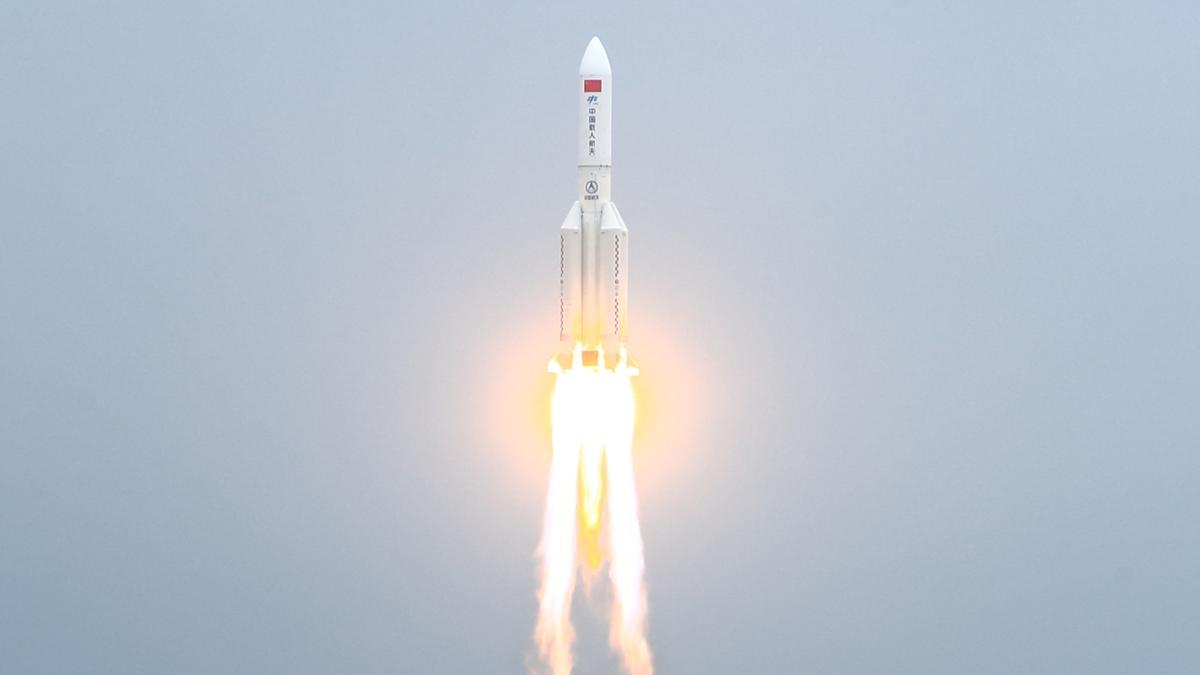
There’s nothing like a chunk of rocket hurtling back to Earth to make you get out of bed on a Friday morning, hey? And that’s exactly what’s happening right now. Where will it land? Who knows!
The Long March 5B rocket, carrying the core module of China’s first space station, successfully launched last week.
But part of the 22.5-tonne rocket is tumbling back to Earth and is expected to hit sometime over the weekend.
According to The Aerospace Corporation, this is happening because the first stage of the Long March 5B also reached orbital velocity, which doesn’t usually occur. In most cases, the first stage drops back to Earth soon after liftoff.
The first stage, commonly the largest part of the rocket, does the heavy lifting. Its primary purpose is to basically lift the rocket into the air.
“Their trajectories are planned so that the stage and any strap-on boosters fall into a safe area, usually in the ocean,” The Aerospace Corporation explained in a recent blog post.
But because the first stage of rocket reached orbit, it was no longer able to control where it would reenter.
The latest prediction from The Aerospace Corporation reckons the rocket body will make impact on May 9, at 3.43am UTC. That’s 1.43pm over here.
Our latest prediction for CZ-5B rocket body reentry is:
🚀09 May 2021 03:43 UTC ± 16 hours
Reentry will be along one of the ground tracks shown here. It is still too early to determine a meaningful debris footprint. Follow this page for updates: https://t.co/p2AU9zE3y2 pic.twitter.com/MgzRAOTJnk— The Aerospace Corporation (@AerospaceCorp) May 6, 2021
At this stage, however, experts aren’t too sure where exactly it’ll land.
The Aerospace Corporation reckons it could hit anywhere near Chicago, Rome, and Beijing, or as far south as New Zealand and Chile.
For what it’s worth though, the chances of the rocket hitting a populated area are very small.
About 75 per cent of the Earth is covered in water, so here’s hoping it just makes a really, really big splash.
“The risk that there will be some damage or that it would hit someone is pretty small – not negligible, it could happen – but the risk that it will hit you is incredibly tiny,” Dr Jonathan McDowell, astrophysicist at the Astrophysics Centre at Harvard University, told Nine News.
“And so I would not lose one second of sleep over this on a personal threat basis.”
If you want, you can sit back and track the Long March 5B right here.







